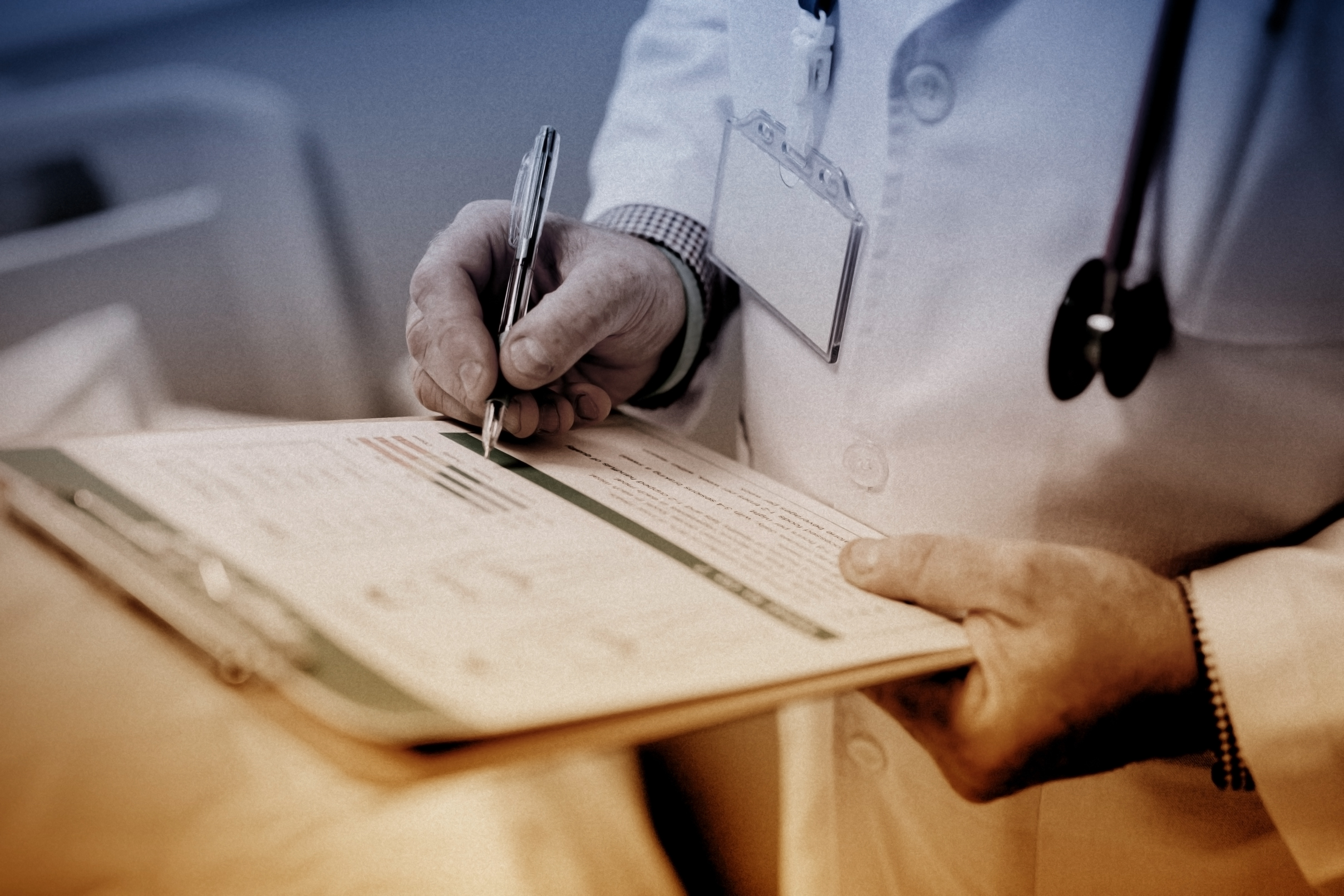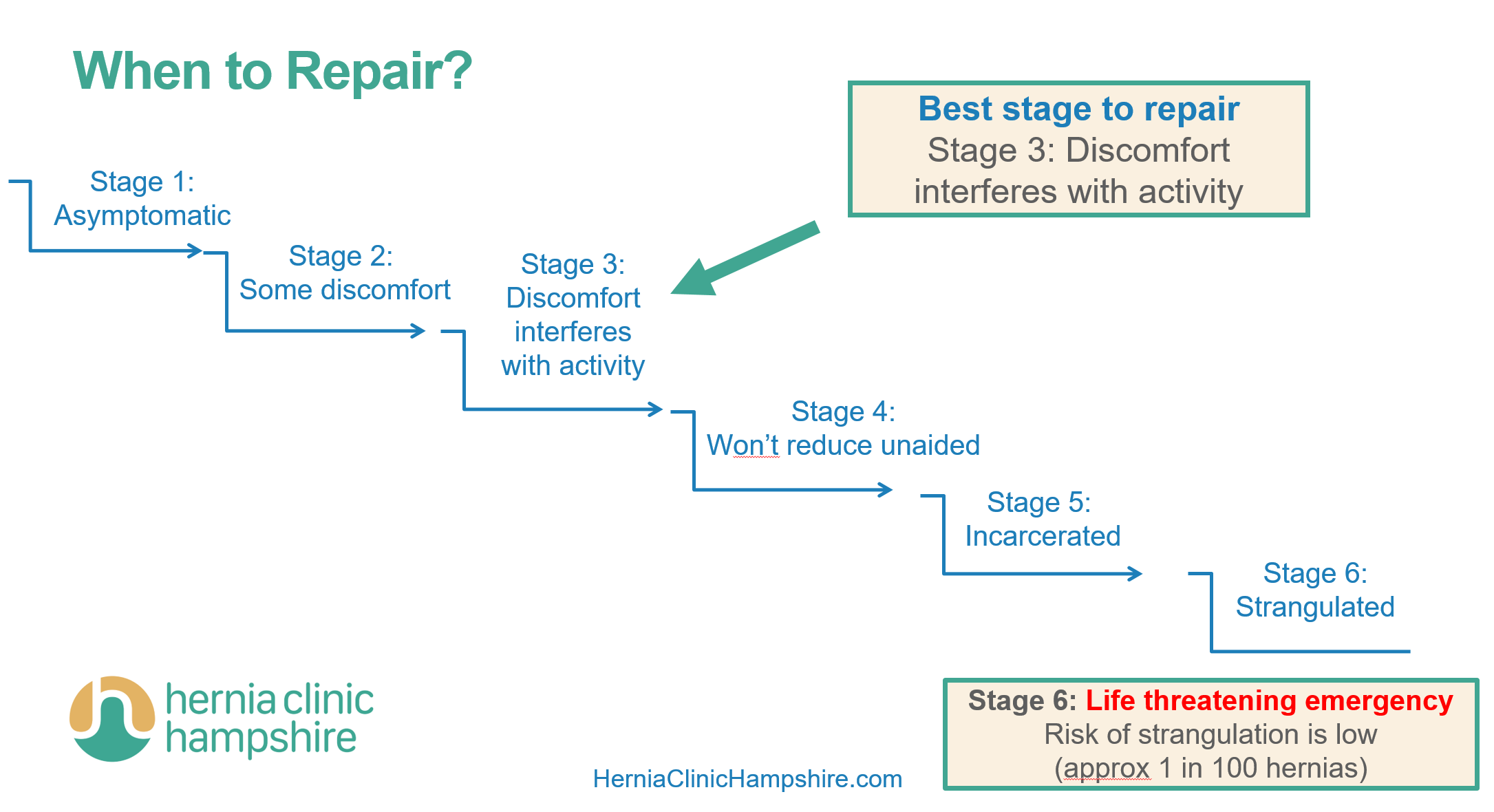Can I ignore hernia pain?

Hernia symptoms affect people in different ways. People often ask if hernias will get better by themselves. If left alone they will develop and become more painful and complicated overtime. As this is a mechanical problem, like a hole in a wall, they don’t repair by themselves. Nor are there any medicines to cure hernias.
Population studies show that 60% of patients with a hernia have no related symptoms initially, but will go on to develop activity limiting symptoms with pain requiring surgery within approximately 18 months.
Some medical sources advise you to do fewer activities that push the hernia out further (for example lifting shopping) so that they don’t become symptomatic. But this advice can interfere with the quality of your life significantly.
This stage (hernia stage 2-3 in the diagram) is the ideal time to get a hernia repaired to prevent this change in lifestyle and incur discomfort. We aim to avoid making you wait and long NHS queues by offering consultation / surgery space within weeks of contacting us. In the meantime, you can try using a hernia support brief that are sold online. These may help reduce the discomfort of a hernia but don’t fix it. When used as the manufacturer recommends, they can control symptoms making them a useful stop gap while waiting to see a surgeon and have surgery.
Do you understand what causes hernias or causes them to reoccur? If not read the information explained by Mr Kirkby-Bott
Previous inguinal and umbilical surgery patients have recommended briefs from www.orthotix.co.uk for effective hernia support.
What happens if I ignore hernia pain?

If left untreated the hernia can, after some time, go through the stages explained in the diagram and then become an emergency.
- Stage 4 – Difficult to reduce; is an early warning sign of an emergency developing and painful. Seek help by calling us if you reach this point.
- Stage 5 – Incarceration; means the hernia will not reduce under any circumstances and very painful. A specialist hernia surgeon may be able to reduce it for you. If so use a hernia support brief and get an operation within 1-2 weeks.
- Stage 6 – Obstruction; causes abdominal distention, reduced bowel opening and vomiting. Strangulation is cutting off the blood flow to the hernia contents that is often part of the intestine. This is a life threatening emergency and will require emergency surgery.
-
If you have hernia pain over an irreducible lump with hot, reddening skin it is strangulated. Seek urgent medical care the same day. DO NOT wait for it to get better!
The risk of hernia strangulation is low: approximately 1 in 100 hernias. Do not wait for these latter stages to develop before seeking a consultation on hernia repair.
Our strong recommendation as to how long you can wait to repair your hernia is:
When a hernia becomes uncomfortable and the pain starts to interfere with daily activities (stage 2-3) it is the right time to have an operation to repair it.
